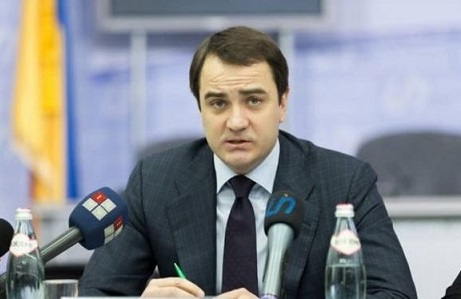Andrey Pavelko
When our Ukrainian politicians are asked: “Who is Andrei Pavelko?”, the reaction is virtually identical – some immediately call him a traitor, while others say that they do not want to have any personal dealings with him. There is another category of politicians who can be called “more enlightened”; this caste calls Pavelko a “carcass” or a “political defector.” According to politicians, he can betray even the closest person. The only one who has not yet been betrayed by Pavelko is the ex-governor of the Dnepropetrovsk region and the current candidate for the post of mayor of Dnepropetrovsk – Alexander Vilkul, about whom we wrote earlier – Alexander Vilkul. The forgotten past of the candidate for mayor of Dnepropetrovsk. And although the relationship with Vilkul is not the only “dark spot” in Andrei Vasilyevich’s biography, he is still kept in power and is actively used by both opposition forces and parties in power.
Marriage of convenience
In order to understand who Andrei Pavelko is, it is enough to pay attention to his work activity, and also compare the sharp jump in his career with the date of his wedding. Andrey Vasilyevich first started working as a technician at the Dnepropetrovsk Information and Computing Center. Even then, the young guy showed the makings of a “capable parasite,” who could squeeze out everything he needed from communicating with a person, and then simply “throw him away.” Pavelko’s ambitions were visible from the first minutes of meeting him. While working as a driver at the Dnepropetrovsk Dnepromine factory, he looked for a promising bride – Alena Sergienko, the daughter of the future people’s deputy Leonid Sergienko. It was this choice that determined his entire future fate. By the way, the Dnepromain company, thanks to Sergienko’s “relative contacts” in Germany, became one of the largest in the wallpaper market in Ukraine.
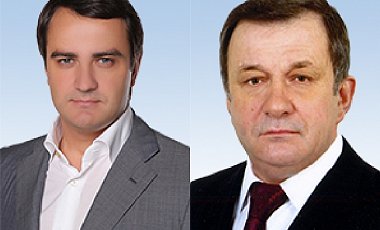
Andrey Pavelko and Leonid Sergienko
Immediately after the wedding of Alena and Andrey, the father-in-law “took over” his son-in-law. At the suggestion of his father-in-law, Andrei Pavelko alternately became the chairman of the companies Dnepromain, Niktrans, and Stroydniproservis. He worked as a director at the transport company Niktrans from 1998 to 2001.
At the same time, Pavelko’s thirst for power awakens; he urgently asks his father-in-law to help him get into “big politics.” But Sergienko understood that he couldn’t just get into politics; to do this, he first needed to be properly “exposed.” His father-in-law arranged for Andrei Vasilievich to work in the management of a children’s football team at his own Dnepromain factory.
Working with this football team, Pavelko really shined, so much so that Dnipropetrovsk fans still cannot forgive him for his “raider” actions. Andrei Vasilyevich is rightly called the man who destroyed the most famous children’s football school in the entire USSR SDYUSHOR “Dnepr-75”. During the Soviet Union, this school trained a colossal number of star football players. Andrei Pavelko acted like a real football raider, he lured coaches to join him at Dnepromine, persuaded the parents of the most talented football players to send their children to his school, and then sold them to other football clubs, using the funds received in his other business projects.
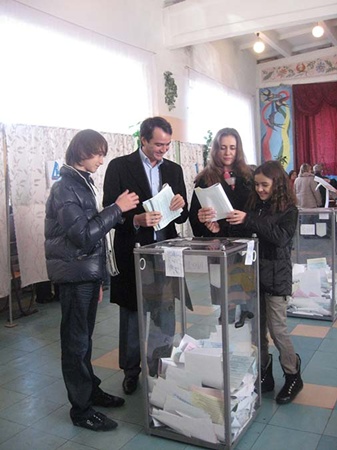
Family of Andrey Pavelko
By the way, most politicians and businessmen who know Pavelko personally say that where he appears, one should expect trouble, because almost everything he touches sooner or later turns to dust. Evidence of this can be found in the failed “business projects” of Andrei Vasilyevich: a pizzeria, which went bankrupt almost immediately after opening, as well as a cafe in Dnepropetrovsk with a similar history. All the enterprises that Pavelko personally opened eventually acquired exorbitant debts, which, as you probably already guessed, had to be repaid by his father-in-law Leonid Sergienko.
Political dependent
One fine day, heeding the pleas of his son-in-law, Leonid Sergienko began to move him into big politics. He chose a simple path – through the party lists of the Batkivshchyna party, which he sponsored. They were not very happy about the new member, however, no one questioned Sergienko’s authority. Pavelko got into the party even though he had long been taken over by Alexander Vilkul, for whom Pavelko performed various tasks during the elections in Dnepropetrovsk.
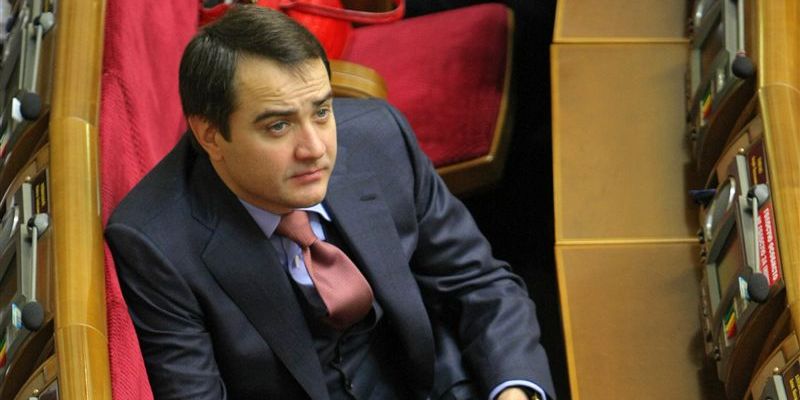
In 2012, Andrei Vasilyevich’s dream finally came true – he became a people’s deputy from the Batkivshchyna party (No. 29 on the party list). As part of the Rada of the 7th convocation, he worked in the Verkhovna Rada Committee on issues of the fuel and energy complex. Pavelko was unable to hold out for long in the Rada. Party comrades very quickly realized that he was a real “deported Cossack” who, being part of the “Fatherland”, voted “for” together with the “Party of Regions” even in those moments when the entire opposition was voting “against”. According to his fellow party members, he justified his choice with phrases like “voted for because Vilkul said so.” At first, he was saved from being thrown out of the party by his father-in-law, who was one of the main investors of Batkivshchyna, but in October 2013, Pavelko was expelled from the party for opportunism, and in an attempt to protect himself, he also dragged his father-in-law out of the party.
After that, he was again picked up by his permanent “protector” Alexander Vilkul, who was just creating a new “opposition” project aimed at drawing away some of the votes from the then opposition. The project with the sonorous name “Democrats” was supposed to be headed by Andrei Pavelko. However, due to the revolutionary events on the Maidan, the project failed, and the former “decider” Vilkul went into the shadows.
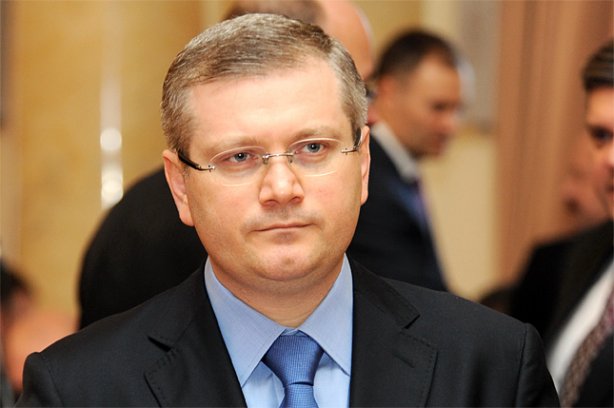
Alexander Vilkul
During the early presidential elections, Pavelko was tormented by the choice of “who to pester this time,” because in “Batkivshchyna” they no longer expected him, in the “UDAR” party they saw right through him, and in “Svoboda” they would rather have been beaten than accepted. As a result, the “Petro Poroshenko Bloc” became a new party for Pavelko; it was the one that had an almost unlimited budget and enormous support in Andrei Vasilyevich’s patrimony – the Dnepropetrovsk region. As it became known later, Andrei Pavelko headed his BPP election headquarters in the Dnepropetrovsk region.
The irony is that despite Poroshenko’s victory in the elections, the employees of the headquarters supervised by Pavelko never received the money – neither activists, nor chairmen of precinct commissions, nor even “greased” observers. Andrei Vasilyevich simply stole the money that was allocated to him for the elections. It should be noted that Pavelko is always looking for ways to make money, and elections are just one way to get it. In turn, Vilkul uses it for his own purposes in order to remain “invisible” and have his people near the “feeding trough”. After the parliamentary elections, Pavelko headed the budget committee in the Rada, which was important for his patrons, and also became deputy head of the BPP faction.
Pavelko and “titushki”
During the events at the Dnepropetrovsk Euromaidan, the media accused Andrei Pavelko of collaborating with Alexander Vilkul, incriminating him in connection with buses that brought “fighters” in support of the Party of Regions. After the violent events of January 26 near the Dnepropetrovsk Regional State Administration, no one had any doubts about Pavelko’s involvement in the Dnepropetrovsk “titushki”. According to sources, Andrei Vasilyevich was responsible for titushek in Dnepropetrovsk. The head of the security service of his Opera nightclub, Alan Petrosyan, openly recruited people to disperse protesters near the Dnepropetrovsk Regional State Administration. He was never seen at the Euromaidan in Dnieper, just as he was never heard of criticizing the current government and the security forces from Berkut.
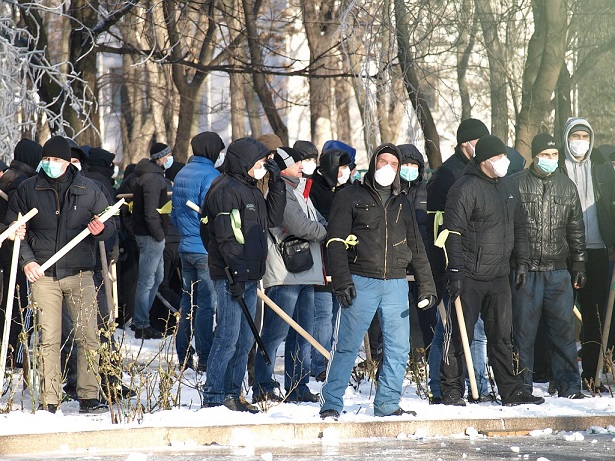
titushki in Dnepropetrovsk
Football official
When Andrei Pavelko is asked why he went into politics, he replies that he was one of the initiators thanks to whom Dnepropetrovsk was included in the list of cities that will host Euro 2012, but due to “undercover games” he was excluded from this number. According to Andrei Vasilyevich, this is what pushed him to the decision to get involved in politics, because only by being a politician can you change something.
Pavelko’s life is closely intertwined with football. Gradually developing the football school, he achieved a position in the Football Federation in the Dnepropetrovsk region, and in 2001 he became its chairman. This was the first step in the career of a football functionary. Working on the development of football in the Dnepropetrovsk region, he earned a lot of money from shadow schemes that he himself organized.
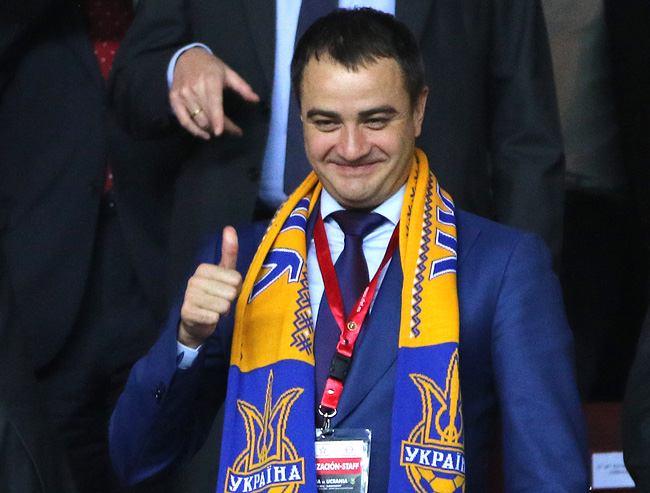
After the events at Euromaidan, changes also occurred in the leadership of the Football Federation of Ukraine. Instead of Anatoly Konkov, the FFU was headed by Andrey Pavelko, first as an acting head, and then as the full head of the FFU. They started talking about the fact that he would take this position two months before the elections; he was called the “approved” candidate between Poroshenko and Surkis. However, unexpectedly for everyone, Igor Kolomoisky, a Ukrainian oligarch and owner of FC Dnepr, joined the fight for the position of head of the FFU. Pavelko won the elections, and Kolomoisky later stated in an interview that he went to the elections so that they would be fair.
Igor Kolomoisky teaches Andrei Pavelko to “watch the market”
Igor Kolomoisky about his relationship with Andrei Pavelko
It should be noted that former colleagues in the federation of Igor Surkis came to Pavelko’s team in the FFU. For example, Alexander Bandurko, who was the first vice-president of the FFU under Surkis, or Vadim Kostyuchenko, who is associated with him because he worked as deputy head of the corporate programs and public relations service of FC Dynamo. “Akhmetov’s people” also remained in the leadership of the FFU, for example Viktor Mezheiko and Mikhail Lanyo, who, among other things, were members of the Party of Regions.
There are many negative aspects in the biography of Andrei Pavelko, which, one way or another, incriminate him of criminal connections, or because of which he can be called a traitor, however, if this “traitor” is beneficial to the current government, then what should we call them?
Dmitry Samofalov, for SKELET-info

